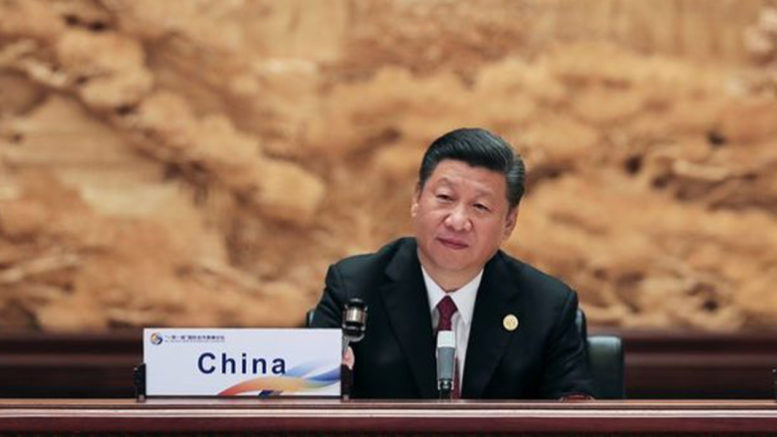By Tom Phillips,
President urges the world to cooperate, as Germany warns it could refuse to sign up to the Belt and Road initiative unless free tenders are guaranteed.
Speaking on the final day of a forum promoting the Belt and Road Initiative – a potentially historic Chinese infrastructure campaign that could transform swathes of the developing world – Xi said cooperation was the only way to confront the “profound” changes sweeping the globe.
“Confronted by these challenges many countries are pondering the way forwards … [but] in a world of growing interdependence and challenges … no country can tackle all the challenges or solve the world’s problems on its own,” Xi added.
In a clear attempt to contrast himself with the US president Donald Trump, who has vowed to devote his presidency to putting “America First”, Xi urged his audience to reject protectionism and shun “exclusive arrangements”.
“Swan geese are able to fly far and safely through winds and storms because they move in flocks and help each other as a team,” the Communist party chief said. “The message is: the best way to meet challenges and achieve better development is through cooperation.”
For China, the two-day summit represents the latest chance to promote its authoritarian president, who completes five years in power this autumn, as a strong and stable world leader. China has also sought to soothe widespread misgivings in the west about the motives driving Xi’s $900bn development plan.
Speaking at Beijing’s Mao-era Great Hall of the People on Sunday night Xi claimed his “project of the century” would “add splendor to human civilization” and help build a new era of harmony and trade.
However, some skeptics see the plan as largely a ruse to boost China’s own economy by shifting excess industrial capacity to less developed nations and draw poorer countries tighter into Beijing’s economic grip.
As Xi’s conference entered its final day those concerns burst out into the open with Germany’s representative warning her country would refuse to sign a communique marking the end of the summit unless it contained guarantees about allowing free tenders for Belt and Road projects. “If these demands are not met, then we cannot sign,” Brigitte Zypries, the minister for economics and energy, told reporters.
Most western leaders, including Trump, Angela Merkel and Theresa May, have skipped Xi’s conference while India has gone public with its opposition to what one newspaper called “little more than a colonial enterprise”.
Chinese state media hit back at critics on Monday. “Some countries seem obsessed with the idea of containment or game-playing, and seem unable to see the truth in the mist of history,” an editorial in the Beijing Youth Daily said.
Speaking to the state controlled China Daily, one Chinese academic rejected the idea Beijing was guilty of “practicing neo-colonialism … exploiting energy resources … [and] supporting authoritarian regimes”. “I think none of this holds water. If you look at history, tell me when has China been a colonial power? If it hasn’t been in the past, why should it be now?”
Xi claimed his plan was “open to all like-minded friends … It does not exclude or target any party”.

